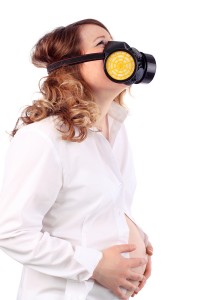 We don’t always have a choice as to where we live when we conceive. This is especially true if one lives in poverty. I do have a friend that views pregnancy as a time of transition. She has never conceived and given birth in the same town; however, for most of us, pregnancy brings on a nesting urge.
We don’t always have a choice as to where we live when we conceive. This is especially true if one lives in poverty. I do have a friend that views pregnancy as a time of transition. She has never conceived and given birth in the same town; however, for most of us, pregnancy brings on a nesting urge.
What if you live in an area of high air pollution? Unfortunately, air pollution in our communities may be causing an increase in babies who develop autism.
According to the first national study on in utero air pollution exposure and autism rates conducted at the Harvard School of Public Health (HSPH), as reported by Time Healthland:
They compared autism rates with levels of pollutants measured by the U.S. Environmental Protection Agency during the womens’ pregnancies. Expectant mothers who lived in the 20% of locations around the country with the highest pollution levels in the form of diesel particulates or mercury were two times as likely to have a child with autism compared with those who lived in the 20% of locations with the lowest levels of pollution. Women who lived in the 20% of areas with the highest levels of other pollutants, like lead, manganese, methylene chloride and other metals, were nearly 50% more likely to have a child with autism.
How do you know if you live in one of these high pollution areas? If you can’t just tell from the air you breath, you can enter your zip code into the map on the EPA’s homepage to view recent information.
Air pollution is a public health issue. We need regulations to clean our air, as we can’t do it alone.
If you do live in a highly polluted area, perhaps installing an air filter in your home, as well as house plants, would help improve your indoor air quality. Becoming active locally in cleaning up the air, as well as looking at our individual practices that contribute to air pollution (idling in the car, lawn equipment, use public transportation), etc. are ways we can make a small difference.
I recently returned from a trip to Italy where we spent a lot of time traveling by rail. The train system of Europe keeps people from driving their cars and is highly efficient. In comparison, once we landed at SFO, we were stuck in traffic for over an hour in the Bay Area.
We need infrastructure that supports a reduction in personal contributions to air pollution as well as increased government restrictions on polluting factories.
Time Healthland continues:
“Our results suggest that new studies should begin the process of measuring metals and other pollutants in the blood of pregnant women or newborn children to provide stronger evidence that specific pollutants increase risk of autism,” said senior study author Marc Weisskopf, an associate professor of environmental and occupational epidemiology at HSPH in a statement. “A better understanding of this can help to develop interventions to reduce pregnant women’s exposure to these pollutants.”
I would like to know more about those interventions.
Via: Inhabitots
Image: Pregnant suffering woman in white and respirator holds belly isolated on white background on Bigstock
e same house in the same city during all pregnancies and i have one, not two autistic sons. I think that i was exposed to more pollutants with my first baby than the second, yet my second baby showed the signs of autism. Please stop trying to find the why and just help the ones who struggle with their disability. Autistic kids just want to be understood and loved. Stop scaring new parents into thinking that putting their kids in a bubble without vaccines, without pollution (if that’s even possible) will give them a child without autism. It can happen to anyone anywhere.
I do not intend to scare parents. As a parent of a child with special needs, I understand the desire to know the why, even though it does not change things. I will never know the why, but if we want to get a handle on the increase in developmental disabilities in our children, we do need to look at our environment and clean it up.